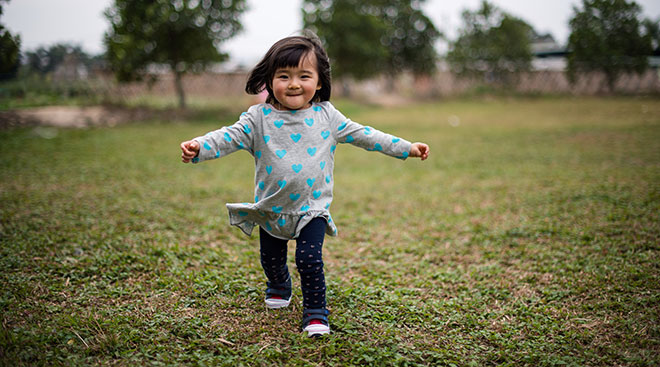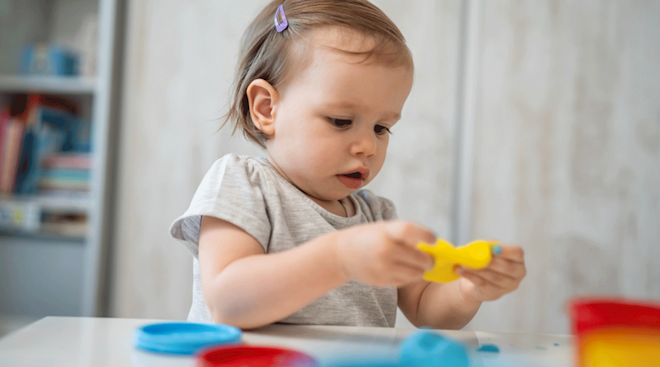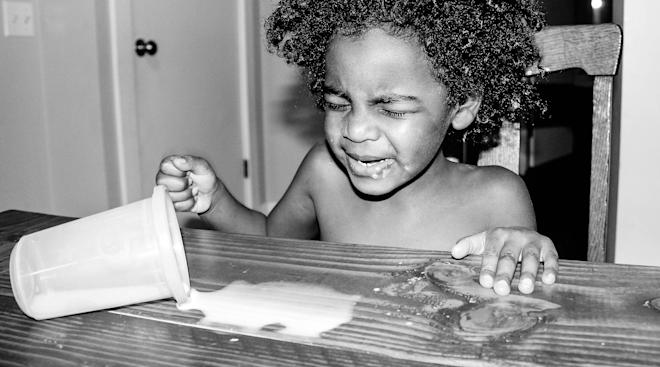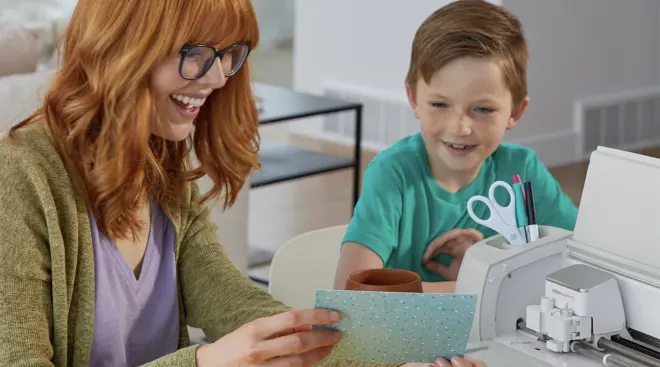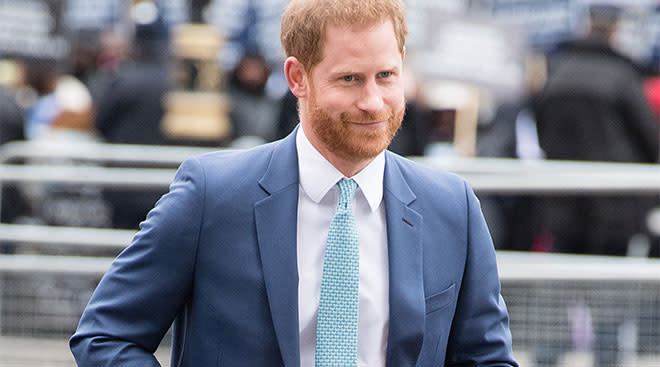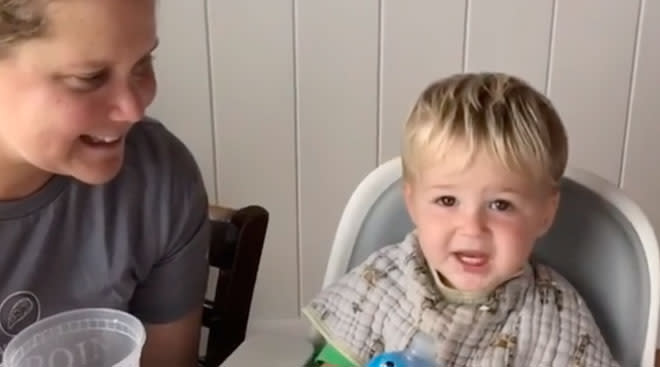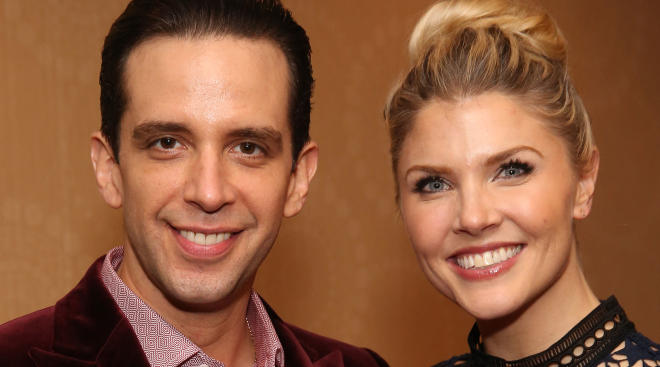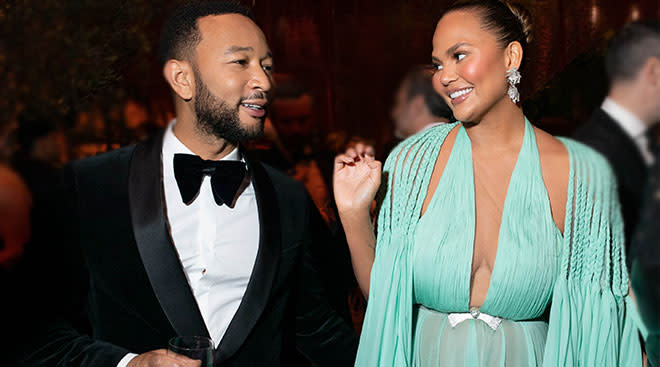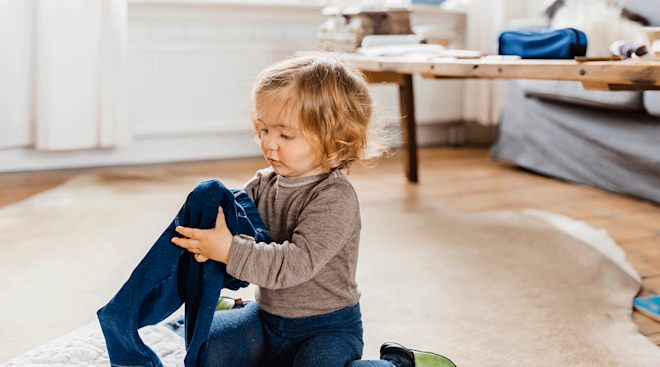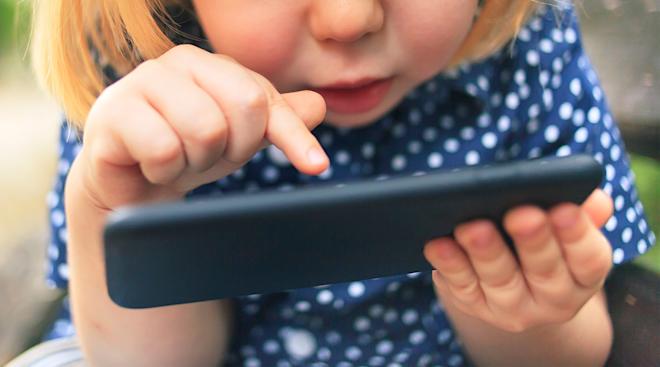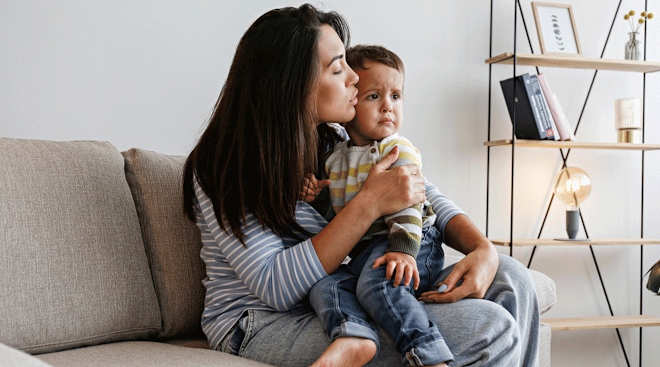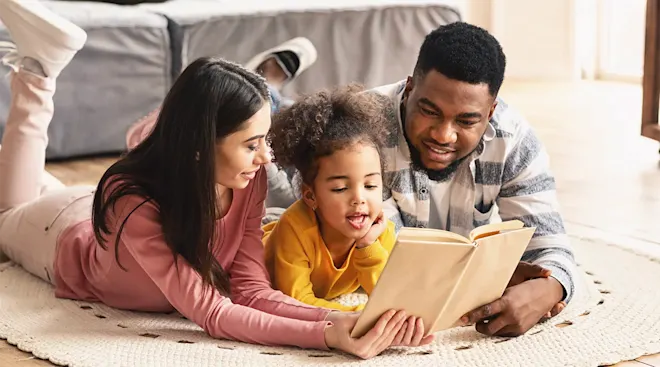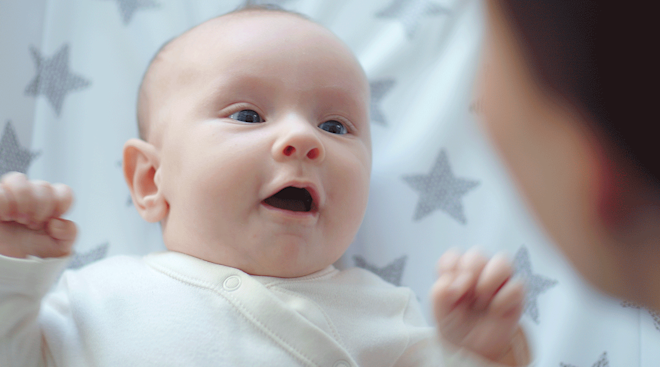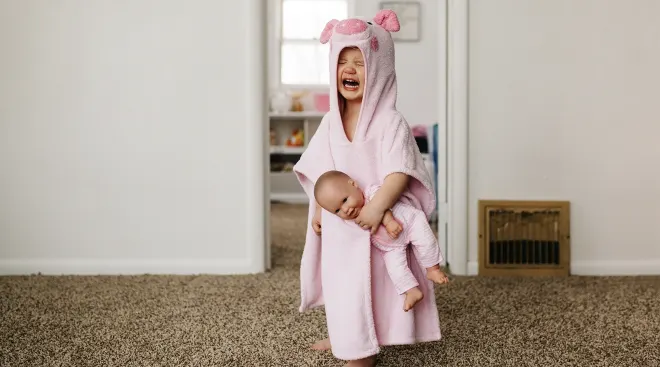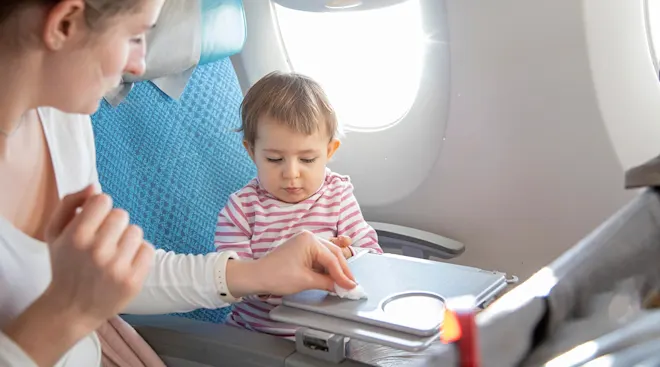Toddler Age Range: When Does Toddlerhood Start and Stop?
If there’s one thing every parent knows is true, it’s that babies don’t keep. It may seem as if one day you’re looking at baby’s sweet gummy smile and the next you’re negotiating how many stories your (now) toddler gets before bedtime. While you’re undoubtedly wondering where the time went, you may also be wondering what you can look forward to as baby becomes a toddler. Below, we break down what you can expect during the toddler ages and how long the toddler age range lasts.
The toddler age group starts at one year old, and while the end of the toddler age range is a little less definitive, it’s generally thought to come to close when a child turns 3. “There are no strict upper limits, but we consider toddlers one to 3 and preschool 3 to 5,” says Dina DiMaggio, MD, a pediatrician with NYU Langone in New York City and official spokesperson for the American Academy of Pediatrics.
Curious where the term “toddler” comes from? It’s been around since the early 19th century and is derived from the verb “toddle,” which means to walk unsteadily in short steps—a pretty accurate description of one- and 2-year-olds, don’t you think?
Toddlerhood is a phase full of milestones and behavioral developments. Here’s what you can expect from each stage of the toddler age range.
Your little one develops in leaps and bounds during the first year of toddlerhood. While most parents eagerly await their child’s first steps and words, there are plenty of smaller but still-crucial milestones to look forward to between one and 2 years old.
Milestones
At this age, toddlers begin to hone their fine and gross motor skills, says Alexis Phillips-Walker, DO, a pediatrician at Memorial Hermann Medical Group Pediatrics in Atascocita, Texas. Toddlers in this age range can usually:
- Walk and even begin to run
- Stand on tiptoes
- Find hidden objects easily
- Bend down to pick items up
- Point to certain things when they’re named (like a body part or pictures)
- Stack three to four blocks
- Speak in two-word sentences
- Tries to say three or more words besides “mama” and “dada” by 18 months
- Begin to sort shapes and colors
- Follow two-step instructions
Behavioral development
During this toddler age, little ones begin to better understand and explore the world around them. They start to recognize objects and are keen observers of your actions. “They start to imitate behaviors, such as vacuuming, brushing hair or picking up a phone and pretending to speak, and mastering simple games like peekaboo,” Phillips-Walker says.
Between the ages of one and 2, toddlers also learn to distinguish between themselves and others, says psychologist Dan Peters, PhD, executive director of the Summit Center in California, which specializes in educational and psychological assessments of children. By the age of 2, toddlers become interested in their family members and other kids and are excited to play with them.
Now that your child is inching toward the end of the toddler age range, you may start to notice a surge of independence and the onset of the “terribles twos,” a time in which toddlers tend to exhibit challenging behaviors as they test boundaries and assert a burgeoning sense of autonomy.
Milestones
- By their third birthday, your toddler will likely be able to:
- Walk up and down stairs
- Stack six or more blocks
- Draw a line on paper
- Say more than 200 words
- Use two to three sentences in conversation
- Say their first name and age
- Understand cause and effect. “This will be evident in the type of toys they play with—like wind-up toys or turning lights on and off,” Phillips-Walker says.
- Engage in more sophisticated play. They will play in a sequence now,” Phillips-Walker says; for example, they might feed their doll, then rock them and put them to bed
- Play with peers
- Display problem-solving skills
Behavioral development
This is the toddler age when little ones become more independent as they gain new skills and confidence. They’ll want to dress and feed themselves and will likely do something over and over until they’re successful at it, Phillips-Walker says.
Along with this newfound independence often comes an uptick in tantrums and possibly hitting and biting. Phillips-Walker says this is largely because toddlers understand and feel more than they can verbally express, which can lead to frustration. “They are also exploring their new skills, resulting in them testing boundaries,” she adds.
Toddlerhood is a crucial time in your little one’s development. While the terrible twos (which can bleed into three) can be frustrating and challenging at times, it’s important to remain calm and help your toddler learn how to recognize and cope with big feelings. Below, some top tips experts believe are most important for these toddler ages:
-Encourage their expanding curiosity. Visiting zoos, child-friendly museums, going to the park, reading together and playing games are all ways parents can encourage their child’s curiosity. Point things out, ask questions and give your tot time to respond.
-Empower them to do things on their own. During the toddler ages and stages, encourage your little one’s independence by letting them make simple choices and take an active role in age-appropriate activities, such as feeding and dressing themselves, DiMaggio says.
-Validate their emotions. It’s important that toddlers feel safe, both physically and emotionally, Peters says, as they’re experiencing so many things for the first time. They shouldn’t feel ashamed of their feelings or behavior. Instead, validating your child’s feelings lets them know you understand them and helps foster an emotional connection. “It’s okay for your child to have the feelings they have, even if you think they are ridiculous,” says Susan G. Groner, a parenting coach and founder of The Parenting Mentor. “They are still valid feelings.”
-Help them learn to cope. The key to addressing much of toddlers’ negative behavior is to teach your child healthy coping mechanisms for their feelings—and model these skills yourself, as toddlers tend to imitate the behavior they see. “It’s important to model communicating feelings with words and managing strong emotions,” Peters says. “Teach them to talk about how they’re feeling and help them to regulate their strong feelings (hug and comfort them when upset), so they ultimately can learn to regulate themselves as they get older.”
-Be honest about your feelings. Children closely observe the adults in their life. Show them that it’s fine not to be happy all the time, and normalize negative emotions. “Share with your child when you’re frustrated, disappointed or a little stressed,” Groner says. This helps them build a vocabulary for their emotions and helps them understand it’s okay to feel those emotions, and that they don’t last forever.
-Set boundaries for appropriate behavior. While validating feelings is important, Groner says it’s also important to set boundaries around how your child reacts to those feelings. “It’s okay to have the feeling. It’s not okay to react in a way that may hurt someone or break something,” she explains. “I like to use ‘and’ phrases and help find alternative actions. For example, ‘I can see you are so angry right now AND hitting me when you’re angry is not okay. If you need to hit, let’s find a pillow that you can hit when you’re feeling angry.’”
-Be patient with them. As hard as it may be at times, Peters urges parents to remember that their child’s behavior isn’t personal—it’s just them experiencing the world and trying to make sense of it. “Limit-setting is best when it’s consistent and presented calmly,” he explains, as toddlers respond best when they know what to expect from you. “Try to allow space to get into your toddler’s mind to see what they’re thinking and experiencing, and try to see the world with the same wonder they do. They have a lot to teach us.”
Above all, remember to be patient with yourself! “Sometimes, parents lose their cool with toddlers—it’s a challenging period,” Phillips-Walker says. “If you’re overwhelmed, ask your pediatrician for help and accept relief from a relative. Remember, these are normal feelings.”
Please note: The Bump and the materials and information it contains are not intended to, and do not constitute, medical or other health advice or diagnosis and should not be used as such. You should always consult with a qualified physician or health professional about your specific circumstances.
Plus, more from The Bump:
Dina DiMaggio Walters, MD, is a board-certified pediatrician at Pediatric Associates of NYC and at NYU Langone Medical Center in New York City, and serves as a spokesperson for the American Academy of Pediatrics. She earned her medical degree from Albert Einstein College of Medicine in 2002. DiMaggio Walters is also the coauthor of the book The Pediatrician's Guide to Feeding Babies and Toddlers.
Alexis Phillips-Walker, DO, is a pediatrician with Memorial Hermann Medical Group Pediatrics Atascocita in Atascocita, Texas. She earned her medical degree at Ohio University College of Osteopathic Medicine in Athens.
Dan Peters, PhD, is a licensed psychologist with over two decades of experience. He is the cofounder and executive director of The Summit Center in California, which specializes in educational and psychological assessments and treatment of children. Peters is also the host of the podcast Parent Footprint with Dr. Dan on Exactly Right Media, author of Make Your Worrier a Warrior, From Worrier to Warrior, The Warrior Workbook and co-author of the recent book Bright, Complex Kids: Supporting Their Social and Emotional Development. He earned his doctorate in clinical psychology from the Pacific Graduate School of Psychology in 1998.
Susan G. Groner is a New York City-based parenting coach and creator of the CLEARR™ method of parenting. She is also the founder of the consultancy The Parenting Mentor and author of Parenting with Sanity & Joy. 101 Simple Strategies.
US Centers for Disease Control and Prevention, Important Milestones: Your Child by 18 Months, June 2023
Nemours KidsHealth, Communication and Your 2- to 3-Year-Old, May 2022
Navigate forward to interact with the calendar and select a date. Press the question mark key to get the keyboard shortcuts for changing dates.

































